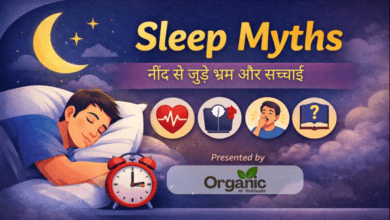Toxic People – How to Identify, Handle, and Heal from Their Impact

In today’s fast-paced world, relationships play a crucial role in our mental and emotional well-being. However, not all relationships are healthy. Some people, knowingly or unknowingly, bring negativity, stress, and conflict into our lives. These individuals are often referred to as toxic people. In this in-depth article by allwellhealthorganic, we will explore what defines toxic people, how to spot them, strategies to protect yourself, and even ways to change toxic behavior in ourselves.
What Are Toxic People?
Toxic people are individuals whose actions or words consistently bring emotional harm, stress, or disruption to others. They may exhibit manipulative, controlling, or abusive tendencies. Importantly, toxicity isn’t a medical diagnosis. A toxic person might not even realize the harm they cause because their behavior often stems from their own struggles, past traumas, or unaddressed emotional issues.
Root Causes Behind Toxic People
Many toxic people act out of:
- Childhood trauma or neglect
- Low self-esteem
- Inability to manage stress
- Mental health disorders such as personality disorders, PTSD, or mood disorders
According to insights gathered by allwellhealthorganic, understanding these causes can help us approach the issue with empathy while still maintaining firm boundaries.
Signs You’re Dealing With Toxic People
It’s vital to recognize when someone in your life is toxic. Identifying the warning signs early allows you to take necessary action to protect your emotional health.
Emotional Red Flags
- You feel emotionally drained after interacting with them.
- You constantly second-guess yourself and your decisions.
- They rarely, if ever, apologize or take responsibility.
- You feel manipulated or controlled.
- You experience constant criticism or belittling.
- They create unnecessary drama or conflict.
Behavioral Traits of Toxic People
- Inconsistency: Their actions don’t match their words, and they break promises often.
- Attention-seeking: They demand constant validation and emotional support but rarely give it back.
- Jealousy and competitiveness: They feel threatened by your success and try to undermine it.
- Boundary violations: Despite your clear limits, they continuously push or ignore them.
- Manipulation: Lies, exaggerations, guilt-tripping, or gaslighting are common tactics.
Toxic People in Different Types of Relationships
Toxic behavior isn’t limited to one type of relationship. It can occur in families, friendships, romantic partnerships, and professional settings. Let’s examine how toxic people show up in various areas of life.
Toxic Parents
Toxic parenting can leave lasting scars that influence a person’s adult relationships and self-esteem.
Signs of Toxic Parents
- Physical, emotional, or verbal abuse
- Constant control through guilt or criticism
- Using children to meet their own emotional needs
- Denial of your experiences or emotions
- Unpredictable mood swings and lashing out
The team at allwellhealthorganic emphasizes that healing from toxic parenting is a lifelong journey, and recognizing these patterns is the first step.
Toxic Friends and Partners
Friendships and romantic relationships should uplift you. But toxic people can make these connections exhausting and painful.
Common Signs
- They always play the victim and refuse accountability.
- They compete with you rather than support you.
- They guilt-trip you into doing things you’re uncomfortable with.
- You feel isolated because of their controlling nature.
Toxic Coworkers and Managers
A toxic work environment can affect not just your job performance but your overall mental health.
Identifying Toxicity at Work
- Bullying, gossip, or backstabbing
- Undermining your work or taking credit for it
- Creating unnecessary tension and conflict
- Disrespecting boundaries and personal space
How to Deal With Toxic People
Once you’ve identified toxic people in your life, the next challenge is managing your interactions while safeguarding your mental and emotional well-being.
Setting Boundaries
Establishing clear, firm boundaries is essential. This might include:
- Limiting contact with toxic individuals
- Clearly stating what behavior is unacceptable
- Not engaging in arguments or manipulative conversations
- Protecting your personal time and space
Direct Communication
Sometimes toxic people are unaware of how their behavior affects others. Confronting them respectfully can open the door to change. Try:
- Using “I” statements to express how you feel (“I feel hurt when…”)
- Avoiding blame and focusing on specific actions
- Being firm but kind
Encourage Professional Help
While it’s not your responsibility to fix toxic people, you can encourage them to seek therapy. Mental health professionals can help them work through their issues in healthier ways.
Manage Your Own Reactions
Toxic people often thrive on creating chaos. Stay calm, and don’t let their negativity provoke you. Focus on your responses, and don’t give them the reaction they’re seeking.
Prioritize Your Well-being
According to allwellhealthorganic, focusing on self-care is critical when dealing with toxic relationships. Prioritize:
- Supportive, positive connections
- Regular mental health check-ins
- Activities that nourish your mind and body
When It’s Time to Walk Away from Toxic People
Sometimes, despite your best efforts, the relationship is too damaging to continue. In these cases, reducing or eliminating contact is the healthiest choice. This can be easier with friends or coworkers than with family, but your well-being should always come first.
Signs it’s time to move on:
- Repeated boundary violations
- Emotional or physical abuse
- Feeling unsafe or constantly anxious around them
- No signs of change despite discussions and efforts
Are You Being Toxic Without Realizing It?
Self-reflection is key to building healthy relationships. It’s possible that certain behaviors you exhibit could be harmful to others.
Signs You May Be Acting in a Toxic Manner
- Frequent criticism or negativity towards others
- Refusal to admit fault or apologize
- Difficulty respecting boundaries
- Jealousy or competitiveness
- Emotional manipulation, even unintentionally
Steps to Change
- Acknowledge and take responsibility for your actions.
- Offer sincere apologies and show willingness to improve.
- Seek therapy or counseling to uncover root causes and learn better coping strategies.
- Practice positive behaviors: listening actively, showing kindness, and respecting boundaries.
Tips for a Healthier You and Healthier Relationships
Whether you’re dealing with toxic people or trying to change toxic behaviors in yourself, these tips can help you cultivate healthier interactions:
- Practice empathy and patience—with yourself and others.
- Strengthen communication skills—listen as much as you speak.
- Maintain balance—avoid codependent dynamics.
- Stay mindful—reflect regularly on your role in relationships.
Final Thoughts on Toxic People
Toxic people can bring negativity, stress, and harm into your life. The key is to recognize these behaviors early, set boundaries, and protect your well-being. Remember, it’s okay to prioritize your mental health, even if that means stepping away from certain relationships. The team at allwellhealthorganic encourages readers to focus on building connections that nurture and uplift.
If you believe you might be contributing to toxicity, self-awareness and a willingness to change are powerful first steps. With support, effort, and compassion, both for yourself and others, it’s possible to foster healthier, more fulfilling relationships.
Frequently Asked Questions About Toxic People
How can I tell if someone is toxic or just going through a hard time?
Everyone can have bad days or stressful periods. Toxicity is characterized by patterns of harmful behavior that consistently damage your well-being, not just occasional moodiness or stress.
Can a toxic person change?
Yes, with self-awareness, effort, and often professional help, toxic people can change. However, change must come from them—they need to want to improve.
Is it selfish to cut off a toxic person?
No. Protecting your mental health is an act of self-care, not selfishness. Your well-being matters.



